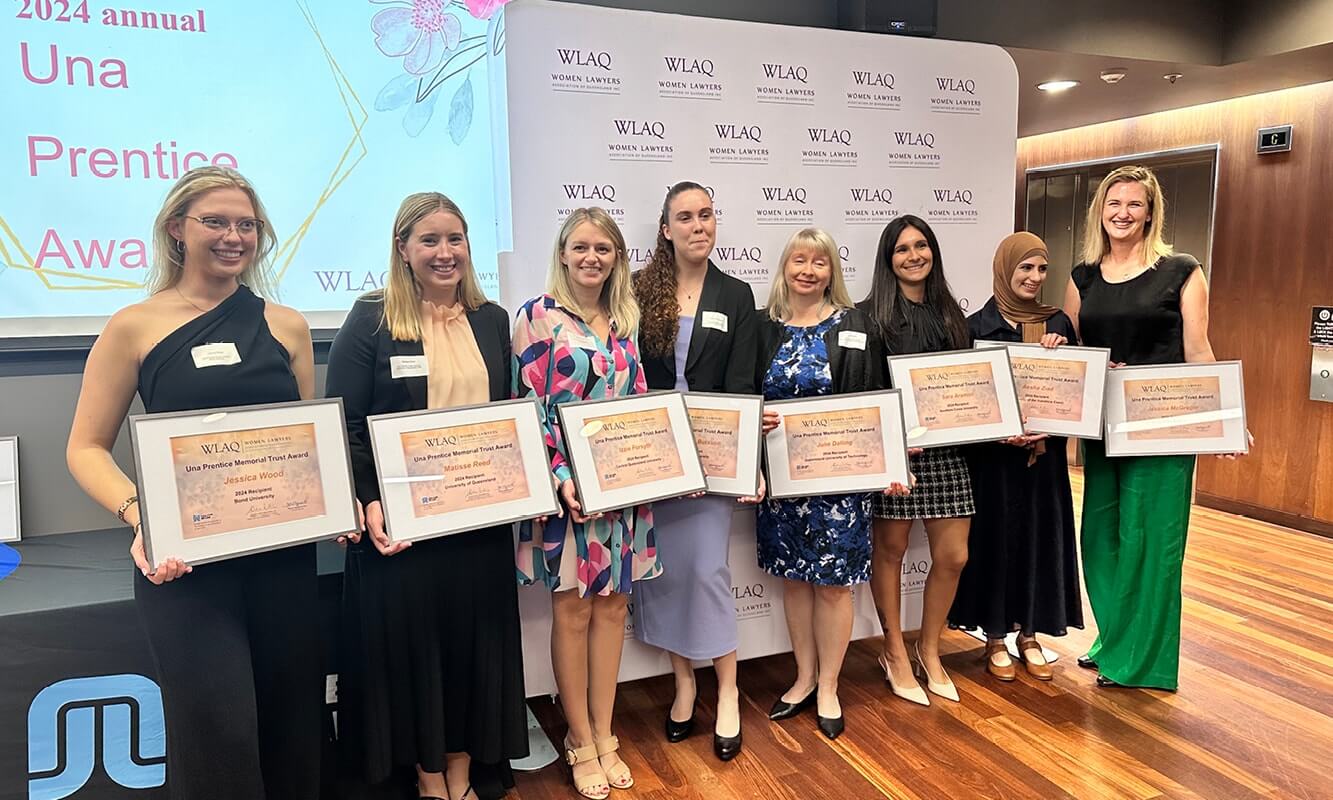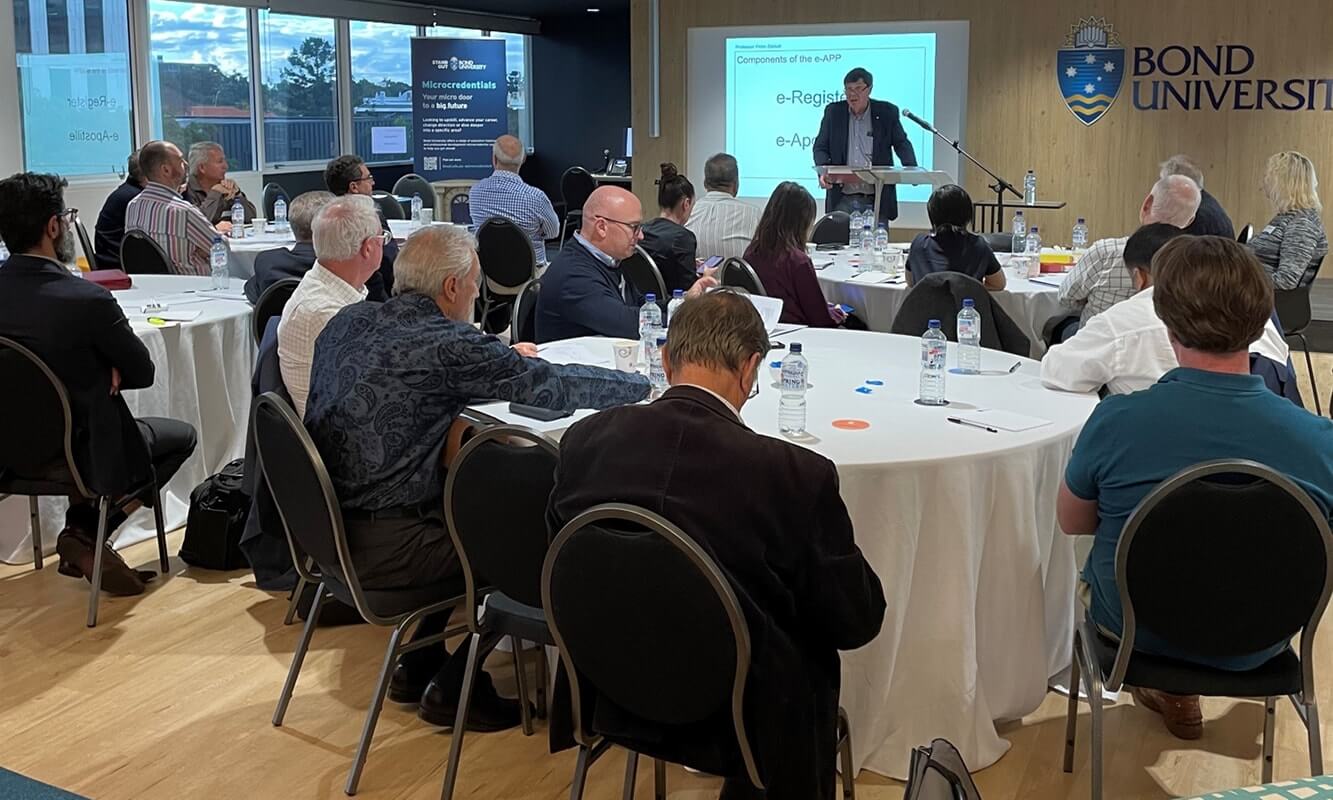The question is no longer should we or do we have a hybrid workforce in the legal profession in Queensland – it’s a resounding ‘yes’.
The better question is now how do we make hybrid work?
In this short series of articles, the Queensland Law Society Innovation Committee taskforce on hybrid work explores some of the major issues which came up when preparing checklists that look at hybrid work from a number of different angles, including:
- Considerations for Clients
- Considerations for your physical office
- Culture and People – things to consider
- Considerations for getting the work done
- Considerations for IT Challenges
We understand the challenges of and the approach to hybrid work will be different for every firm, and so the checklists are intended to simply prompt thought about different aspects to consider. There is no right or wrong way to do this.
Training, mentoring and supervision
Training, mentoring and supervision are important pillars of any law firm.
From a hybrid working point of view, the real things to think about here are:
- How have your staff changed the way they work over the last couple of years since COVID came upon us?
- What is the makeup of your staff, insofar as people working in the office, people working remotely and both?
If your training, mentoring and supervision systems were only aimed at the ‘in-person’ scenario, they will need to change. They will need to be inclusive of all your staff, in whatever way they are working. Some examples to consider are:
a) Induction programs for staff working from home
Your induction program or training for people who are working remotely, or who start working remotely, will need to be altered and updated. You have to make extra effort for people who start a new role working from home or remotely.
It is daunting for anyone to start a new role, and if they do so working from home they can feel particularly isolated and potentially insecure – they don’t know anyone in the office and won’t have the opportunity to meet or interact with other people in the office who aren’t directly working with them.
They are also unlikely to introduce themselves virtually to people in the firm they haven’t yet met. Those staff will also feel less comfortable in picking up the phone to call or email other staff about day-to-day questions.
Your induction and training systems will need to be tailored to assist people in these scenarios – some examples are introducing them remotely to other people in their workgroups, having regular check-ins with their team members and setting up out-of-work events so that they have an opportunity to meet other people in their teams and workgroups in person.
Your induction program will also involve additional training for the ‘supervising’ staff, to ensure that they are aware of additional steps involved with a new starter who is working from home.
b) Technology to deliver presentations, communications and learning and development
At a practical level, does your firm have the technology to deliver internal presentations, firm communications, learning and development sessions and CPD sessions for staff who are in the office or working remotely? Are those sessions provided in a platform that your staff can watch on their phone?
Although there will be some initial expense in having these capabilities, it is important for firm cohesion and from a learning and development perspective it makes sense to have CPD sessions available to watch at anytime – both for staff who are working from home and for those who are unable to make it to ‘in-person’ sessions for whatever reason.
c) Training of senior staff
Have your senior staff and managers been trained in supervising and mentoring staff who are working remotely, even if that be one or two days per week, or on an ad hoc basis?
Historically, a large part of junior lawyers’ training has been ‘on the job’ and they picked up important training and mentoring just by observing their supervisor go about their day-to-day work – such as having client meetings, phone calls with lawyers on the other side, appearing at mediations, appearing in court etc.
Your supervision and mentoring systems will need to adapt for junior staff who may be working from home for significant periods of time, or for those staff who regularly work out of the office for one or two days a week. It will mean that your supervision and mentoring programs will need to be more ‘proactive’ and likely involve additional content to ensure that your graduates and junior lawyers are still receiving the same extent of training and mentoring.
Having significant staff numbers working from home is a relatively new phenomenon for most law firms, and it shouldn’t be assumed that your senior staff automatically know how to adapt to this change in the workforce.
Often your senior staff are the busiest people in your firm and are likely to be time poor. If you don’t take steps to provide additional training and guidance to your senior staff in supervising and mentoring staff who aren’t in the office you run the risk of:
- your staff not being trained properly
- a drop in standards across your firm
- your firm culture and morale being affected, and
- not retaining your junior staff.
This training is likely to include:
- different ways of conducting catch-ups/check-ins with your staff involving various forms of technology
- explaining the importance of obtaining feedback from team members as to the best ways of communicating with them and making them feel part of a team
- ensuring that senior staff are available to be contacted by remote working staff when needs be – and the importance of being available to staff who aren’t in the office.
Although it will take some extra work to set up, having your training, mentoring and supervision systems set up to cover both ‘in-person’ and hybrid staff makes sense on a number of levels, and will assist your firm in having a consistent and inclusive approach to all staff, however they may be working.
Law firm culture
Law firm culture is a very important topic, but it is worth noting in a hybrid working world:
- Are your senior staff checking in with graduates, junior staff and support staff in their teams who are working from home or working remotely? Junior staff in particular can feel more isolated working from home, because they don’t have the safety net of dropping in to someone else’s office to ask ‘basic questions’ and they may be much more reluctant to call or email their supervisor to ask them a question which they think is an obvious or basic one. In turn, that can have an effect both on the morale and mental health of your staff, quite apart from their productivity. For that reason regular check-ins and communication are important.
- By the same token, have you trained your senior staff in flexible ways to check in with their team members?
- Your check-in processes will depend on your team make up, and how people like to communicate. However, check-ins will need to be regular and will definitely involve increased flexibility, in order to make sure that your staff still feel valuable and ‘part of the team’.
- In addition to ‘work-related’ check-ins (that is, about day-to-day work tasks), what else is your firm doing to maintain and promote its culture? This is where the real challenges are likely to arise. If staff aren’t going to be in the office and observing firm culture on a daily basis, then additional communication, steps and events are going to be required for your firm’s staff to ensure that your firm’s culture is maintained – the points on the checklist provide further guidance in relation to cultural issues.
- Whatever the culture of your firm is, it shouldn’t be taken for granted that it will continue to evolve and ‘hang around’ with more staff working remotely. Firms should give careful consideration to what parts of their culture they wish to maintain and nurture, and then give consideration to their existing policies/events and communications to ensure that those things happen in an inclusive and consistent manner.
Mental health
Mental health is an extremely important issue in the legal profession and in a hybrid work scenario, one issue which has become more prevalent over the last few years is being able to ‘switch off’.
That is, people who are working remotely are often getting out of bed, logging on to the firm system to check emails before they have breakfast/exercise etc, then logging on again at the ‘usual’ morning start time.
Many will then work through any ‘lunch break’, may finish at a time late afternoon/early evening and then log on again after dinner – meaning that there is little chance for a real break from work at all during the day.
Given that may well be a common scenario for staff who are working from home, your firm needs to consider giving guidance to its staff about ‘switching off’ – whether that be at the end of the day if they are working from home, or whether that be when a staff member is properly taking a sick day at home because they are unwell, but they are so used to working from home that they just log on and do a full day’s work anyway.
Unless standards are set and guidance is given to all staff about those scenarios, those staff who work from home more regularly may feel that they have to be ‘always on’ and feel stressed about work as a result – leading to impacts on their own mental health and their performance as a team member.
This article appears courtesy of the Queensland Law Society Innovation Committee. Kim Trajer is the Chief Operating Officer of McCullough Robertson Lawyers and a member of the committee. Richard Gardiner is a Senior Litigation Solicitor and Deputy Chair of the committee. Sarah Grace is General Manager of Abuse Law Queensland for Shine Lawyers and a member of the committee.
















Share this article